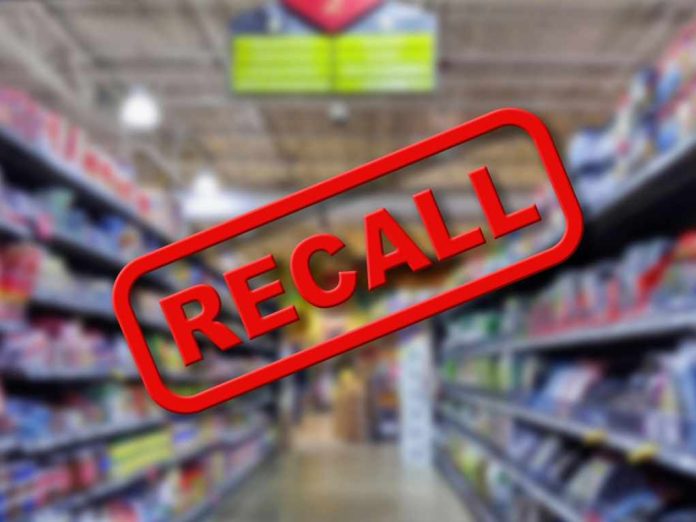
A tomato sauce recall has sparked urgent discussions on food safety, revealing the hidden dangers that can lurk in our kitchens.
Story Overview
- First and Last Bakery, LLC recalls three tomato sauce products due to botulism risk.
- Recall affects products distributed in Connecticut and Massachusetts.
- No illnesses reported, highlighting the recall’s preventive nature.
- FDA and state agencies emphasize strict adherence to food safety standards.
Tomato Sauce Recall: A Closer Look
First and Last Bakery, LLC, a Connecticut-based manufacturer, has initiated a recall of three tomato sauce products due to potential contamination with *Clostridium botulinum*. The bacterium is known for causing botulism, a rare but possibly fatal form of food poisoning. The recall involves Original Marinara Sauce, Original Traditional Pasta Sauce, and Original Puttanesca Sauce. The products were recalled after it was discovered they were manufactured without an approved process schedule, a critical step for ensuring safety in low-acid foods.
Tomato sauce recalled due to ‘potentially fatal’ food poisoning risk https://t.co/pqGT0qMfMB pic.twitter.com/Y0GoPdZBYn
— The Independent (@Independent) November 6, 2025
These products were distributed to consumers in Connecticut and Massachusetts through major retailers like Big Y and Stop & Shop. The recall was publicly announced on October 28, 2025, following their distribution starting September 22, 2025. The decision to recall these products was made before any illnesses were reported, underscoring the preventive measures taken to protect public health. Sales and production of these products have been halted as part of the recall efforts.
Understanding Botulism and Food Safety
Botulism is caused by toxins produced by *Clostridium botulinum*, which thrives in improperly processed canned or jarred foods with low acidity. The FDA and state agencies enforce stringent regulations to prevent such outbreaks, making the lack of an approved process schedule a significant oversight. The Connecticut Department of Consumer Protection was instrumental in identifying the manufacturing issue, prompting the recall. This event highlights the critical importance of regulatory compliance in food processing, especially for small-scale producers.
The recall comes in the wake of other significant food safety incidents, such as a recent recall of pasta products by Nate’s Fine Foods due to Listeria contamination, which resulted in multiple deaths. These events have heightened vigilance in the industry and among consumers, emphasizing the necessity for rigorous food safety practices and oversight.
Impact and Industry Implications
The recall has immediate implications, including the removal of affected products from store shelves and potential financial losses for First and Last Bakery, LLC, and its retail partners. It also raises public concern about food safety, potentially leading to stricter regulatory oversight and changes in manufacturing practices. The recall’s preventive nature, despite no reported illnesses, is a testament to the effectiveness of regulatory oversight and the importance of proactive measures to protect public health.
Long-term, the recall may lead to increased scrutiny of small-scale food producers, pushing the industry towards more stringent compliance with safety standards. This could have ripple effects in regulatory practices, particularly for low-acid canned foods, potentially affecting a broader range of products and manufacturers.
Expert Opinions and Future Directions
Food safety experts stress the importance of approved processing schedules for low-acid foods to prevent botulism. They view the FDA’s recall as a necessary step to safeguard public health. Botulism, though rare, is deadly, and past outbreaks have led to significant changes in food safety regulations. Experts note that even in the absence of reported illnesses, the risk remains serious, reinforcing the need for strict adherence to safety protocols.
Diverse viewpoints highlight the challenges faced by small producers in navigating complex safety standards while maintaining compliance. The recall serves as a reminder of the critical role regulatory bodies play in ensuring food safety, and the ongoing need for vigilance in food processing and manufacturing practices.



